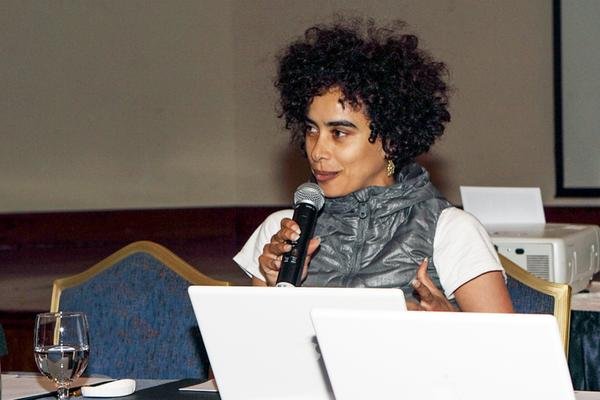The cancellation of an event meant to honor award-winning Palestinian author Adania Shibli at the Frankfurt Book Fair has ignited a significant controversy. Shibli was scheduled to receive the prestigious 2023 LiBeraturpreis, an award dedicated to recognizing outstanding women authors from Asia, Africa, and Latin America. This literary accolade, organized by the association Litprom, was set to be presented at the Frankfurt Book Fair, which was scheduled to take place from October 18 to 22 in Frankfurt, Germany. The recognition was to celebrate Shibli’s remarkable 2017 novel, “Minor Detail,” a work that sheds light on the alleged atrocity committed by Israeli military personnel against a Bedouin girl in 1949.
The decision to celebrate Shibli and include her in panel discussions was abruptly revoked by Litprom following a highly publicized attack by Hamas fighters on October 7 in southern Israel. The attack prompted concerns about safety and security at the event. Additionally, the author’s work had faced allegations of promoting anti-Semitism from certain quarters.
In response to these allegations, a group of prominent literary figures came together to express their support for Adania Shibli. In an open letter, notable personalities like Wallace Shawn, Colm Tóibín, Eileen Myles, Hari Kunzru, Sapphire, and Rachel Kushner, among others, condemned the cancellation of the event. They emphasized that Shibli’s novel, “Minor Detail,” had been unfairly characterized as anti-Semitic by a few journalists and literary editors. However, they highlighted that serious literary critics had refuted these claims in the German press and elsewhere.
The open letter went on to underscore the vital role of major international book fairs, such as the Frankfurt Book Fair, in providing a platform for authors from various backgrounds to share their thoughts and perspectives on literature, particularly during tumultuous times. The letter asserted, “The Frankfurt Book Fair has a responsibility, as a major international book fair, to be creating spaces for Palestinian writers to share their thoughts, feelings, and reflections on literature through these terrible, cruel times, not shutting them down.” This sentiment reflects the broader importance of literary events in fostering cross-cultural understanding and dialogue.
Litprom, the organizer of the LiBeraturpreis, also responded to the allegations of anti-Semitism against Adania Shibli. In a statement, the organization reiterated its commitment to recognizing Shibli’s literary contributions. Litprom clarified that the cancellation of the award ceremony at the Frankfurt Book Fair was due to the war initiated by Hamas, which was causing suffering to millions of people in Israel and Palestine. They cited safety concerns as the primary reason for postponing the award ceremony and mentioned their intention to find an appropriate format and setting for the event at a later date.
Furthermore, Litprom unequivocally rejected the accusations of anti-Semitism against Shibli and her novel, emphasizing that these allegations were unfounded. This statement by Litprom highlights the need to separate political tensions and literary recognition, emphasizing the importance of artistic freedom and expression.
The controversy surrounding the cancellation of the event to honor Adania Shibli’s literary achievements at the Frankfurt Book Fair underscores the complex and interconnected issues of politics, literature, and freedom of expression. While concerns about safety and security cannot be dismissed lightly, it is vital to ensure that artistic and literary contributions are not unjustly suppressed due to external political pressures. Ultimately, recognizing the cultural and intellectual diversity of authors from all backgrounds can contribute to greater global understanding and empathy.
